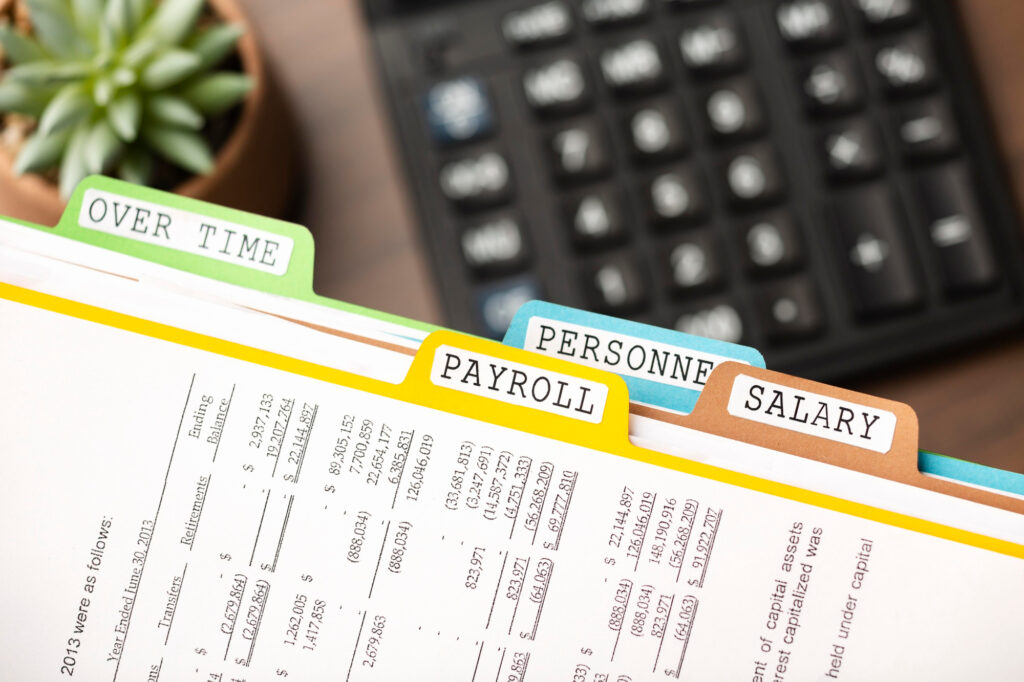In any organization, handling payroll is a crucial but sometimes underestimated responsibility. Payroll managers handle complicated rules, make sure workers are paid on time and properly as well as keep track of crucial financial documents. They combine careful calculations, analytical thinking and tactical planning throughout the day. In order to maintain the seamless operation of the payroll process, payroll managers face a variety of obstacles and vital responsibilities on a daily basis, which will be discussed in this article.
Brief Overview of the Role of Payroll Managers
Since they make sure workers are paid on time and appropriately, payroll managers are the lesser-known heroes of the finance department. They manage the backend operations, taking care of payroll computations, tax withholdings, benefit administration and labor law compliance.
Importance of Payroll Management for Businesses
Businesses must handle payroll effectively since it has a direct influence on employee satisfaction and corporate compliance. According to an American Payroll Association poll, 65% of workers would look for other employment if payroll errors were common. This emphasizes how important precise payroll procedures are to keeping talent on staff.
Morning Routine
Preparing for the Day Ahead
The day of a payroll manager begins long before they arrive at work. To manage the numerous activities and deadlines that characterize their work, preparation is essential. Payroll managers make sure everything runs well and payroll is processed on schedule by planning their days.
Reviewing Pending Tasks and Deadlines
Listed below are the processes payroll managers employ as they review tasks and deadlines:
- Review Emails and Messages: Respond to any pressing concerns or updates from HR or the finance department.
- Update Task List: Set task priorities according to impending payroll cycles and due dates.
- Keep an Eye on Compliance Deadlines: Keep abreast of regulatory and tax filing deadlines.
- Work with Teams: Make sure that there is open communication between the finance, HR and other departments.
72% of businesses, according to Deloitte, rely on payroll managers to ensure compliance with ever-changing rules, highlighting the need of maintaining organization and readiness.
Daily Responsibilities
Processing Payroll for Employees
The core responsibilities of a payroll manager are accurate and timely payroll processing. Strict scrutiny and thorough verification are necessary to ensure that each employee is paid appropriately. This includes:
- Determining Salary: Taking into account overtime, deductions and hours worked.
- Verifying Data: Comparing data with timesheet and attendance records.
- Paying Out: Making sure checks or bank transfers are made on schedule.
According to an Ernst & Young research, data mistakes account for 30% of payroll errors, stressing the importance of careful processing.
Ensuring Compliance with Tax Regulations
Payroll administrators are required by law to comply with tax rules; in order to avoid hefty penalties, they must navigate through the process of complicated tax legislation by:
- Staying Current: Staying informed about local, state and federal tax regulations.
- Filing Taxes: Ensuring taxes are filed on time and accurately.
- Preserving Records: Keeping track of every transaction in case an audit is needed.
The IRS revealed that payroll tax mistakes cost businesses more than $7 billion in fines each year, underscoring the significance of compliance.
Addressing Employee Inquiries and Concerns
In order to maintain openness and confidence, payroll managers act as the go-to source for staff members with queries and concerns about payroll. This task encompasses:
- Addressing and fixing any payroll problems to resolve discrepancies.
- Giving information by taking note of withholdings, benefits and deductions.
- Providing support via helping staff members with paperwork and filings pertaining to payroll.
A PwC poll indicates that 56% of workers want clarification on their paychecks, therefore a payroll manager’s ability to provide this is crucial.
Midday Activities
Collaborating with HR and Finance Departments
Payroll processes are made easy by efficient cooperation between the finance and HR divisions. To integrate payroll with other corporate operations, payroll managers collaborate closely with these teams by doing the following:
- Sharing Data: Trading updates and personnel data.
- Aligning Policies: Making sure that corporate policies are applied consistently.
- Coordinating Audits: Collaborating throughout the financial assessments.
According to the SHRM research, 70% of payroll managers often work with finance and HR to improve overall effectiveness.
Resolving Payroll Discrepancies or Errors
It’s critical to promptly resolve payroll disparities to preserve employee compliance and confidence. This job function entails:
- Identifying Problems: Conducting routine audits to quickly identify mistakes.
- Fixing Errors: Making timely adjustments to the payroll system.
- Communicating Solutions: Informing affected staff members of any solutions.
According to this research done by ADP, 24% of payroll errors remain undetected in the absence of routine audits, emphasizing the significance of prompt error correction.
Afternoon Tasks
Analyzing Payroll Reports and Data
Payroll managers may find patterns, ensure accuracy and streamline procedures by routinely analyzing payroll reports and data. They do the following:
- Produce Reports: Prepare thorough payroll reports for examination.
- Identify Trends: Look for trends in payroll expenses, overtime and absence.
- Ensure Accuracy: Check information to keep accurate records.
PwC reports that 58% of businesses use payroll data analytics to enhance financial decision-making, demonstrating the significance of this approach.
Updating Payroll Systems and Software as Needed
Efficiency and compliance can only be maintained by keeping payroll software and systems up to date. This part involves:
- Software Updates: To access new features, payroll managers make sure that they are utilizing the most recent version.
- System Upgrades: Invest in cutting-edge payroll systems to improve efficiency.
- Training: Ensuring that personnel get training on updated and new systems.
45% of companies intend to update their payroll systems in the next two years to remain competitive, according to a Deloitte survey.
End of Day Wrap-Up
Finalizing Payroll for the Current Period
Payroll managers go into the last stage of processing as the payroll cycle draws to a close, making sure that all payments are precise and made on time. Finalizing payroll includes:
- Double-Checking Calculations: Verifying the correctness of each calculation and deduction.
- Authorizing Payments: Giving the go-ahead for employee payroll disbursements.
- Creating Reports: Writing thorough reports for archiving purposes.
According to an APA survey, 84% of businesses check payroll one last time before processing it, emphasizing the significance of this stage.
Planning for the Next Day’s Tasks and Priorities
Payroll managers must plan ahead to remain proactive and organized when addressing impending tasks. Next day planning and preparation typically means:
- Examining the list of chores to be completed and the deadlines for the following day.
- Setting Activity Priorities: Choosing the things that need to be done with the most urgency.
- Allocating Time: Arranging the day’s activities to get the most out of them.
Effective planning may boost productivity by 25%, according to the Harvard Business Review published research, highlighting its importance in payroll administration.
Staffing Made Effortless. Let the Experts Handle Your Hiring
Helping companies discover the perfect talent for their needs. Finding the right individuals to drive your success is what we excel at.





